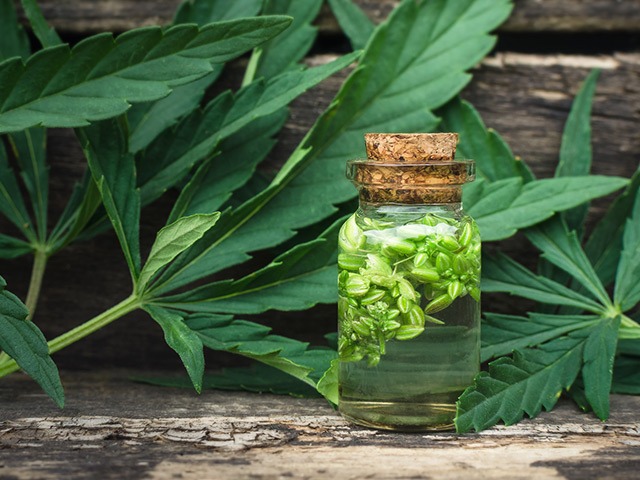In recent years, cannabidiol (CBD) has emerged as a popular ingredient in skincare products, drawing attention for its potential benefits in treating various skin conditions. Derived from the hemp plant, CBD is a non-psychoactive compound that doesn’t produce the “high” associated with hemp use. Instead, it interacts with the body’s endocannabinoid system, which plays a role in regulating numerous physiological processes, including skin health. This article explores how CBD may impact common skin conditions such as acne and eczema, providing a comprehensive overview of its potential benefits.
Understanding CBD
CBD is one of over 100 cannabinoids found in the hemp plant. Unlike tetrahydrocannabinol (THC), the compound responsible for the psychoactive effects of hemp, CBD does not induce a euphoric high. Instead, it has gained attention for its potential therapeutic benefits, including its anti-inflammatory, antioxidant, and antimicrobial properties.
CBD and Acne
Acne is a prevalent skin condition characterized by the inflammation of hair follicles and sebaceous glands. It is commonly associated with excess sebum production, bacterial growth, and hormonal fluctuations. Traditional treatments for acne often involve topical antibiotics, retinoids, or hormonal therapies, but these can come with side effects and varying degrees of efficacy.
CBD’s potential in managing acne stems from its ability to address several underlying factors:
- Anti-Inflammatory Effects: Inflammation plays a central role in acne development. CBD has demonstrated significant anti-inflammatory properties, which can help reduce redness, swelling, and irritation associated with acne lesions. By modulating inflammatory responses, CBD may help calm the skin and prevent acne flare-ups.
- Regulation of Sebum Production: Excessive sebum production is a key factor in acne development. CBD has been shown to regulate sebaceous gland activity, potentially reducing the amount of sebum produced. This can help keep the pores clear and reduce the likelihood of acne formation.
- Antimicrobial Properties: Acne-prone skin is often susceptible to bacterial growth, particularly Propionibacterium acnes. CBD possesses antimicrobial properties that can help inhibit the growth of these bacteria, reducing the risk of infection and further inflammation.
Several studies have investigated the effects of CBD on acne. In a 2014 study published in the Journal of Clinical Investigation, researchers found that CBD effectively reduced sebum production and exhibited anti-inflammatory effects in human sebocytes (skin cells involved in acne development). While these findings are promising, more research is needed to fully understand the long-term effects and optimal usage of CBD for acne treatment.
CBD and Eczema
Eczema, or atopic dermatitis, is a chronic skin condition characterized by dry, itchy, and inflamed skin. It can be triggered by various factors, including allergens, irritants, and stress. Traditional treatments for eczema often involve the use of corticosteroids and moisturizers, but these can sometimes cause side effects or fail to provide sufficient relief.
CBD’s potential benefits for eczema are largely attributed to its anti-inflammatory and moisturizing properties:
- Anti-Inflammatory Effects: Eczema is primarily an inflammatory condition. CBD’s anti-inflammatory properties can help soothe the inflamed skin and reduce itching and redness. By targeting the underlying inflammation, CBD may provide relief from the discomfort associated with eczema flare-ups.
- Moisturizing Properties: Dry skin is a hallmark of eczema, and maintaining adequate moisture levels is crucial for managing the condition. CBD oil is rich in essential fatty acids, which can help improve skin hydration and barrier function. This can alleviate dryness and reduce the frequency of eczema flare-ups.
- Itch Relief: Itching is a common symptom of eczema, often leading to a cycle of scratching and further irritation. CBD has been reported to have anti-pruritic (itch-relieving) effects, which can help break this cycle and provide comfort to those suffering from eczema.
A 2019 study published in The Journal of Clinical Investigation found that topical application of CBD oil improved skin hydration and reduced inflammation in patients with atopic dermatitis. Additionally, a 2021 review in Frontiers in Pharmacology highlighted CBD’s potential as a therapeutic option for various inflammatory skin conditions, including eczema. While these studies are encouraging, more clinical trials are needed to establish standardized treatment protocols and confirm CBD’s efficacy for eczema. Please see post for additional tips and information about CBD’s Impact on skin conditions.

How to Use CBD for Skin Conditions
CBD is available in various forms, including oils, creams, balms, and serums. When incorporating CBD into your skincare routine for acne or eczema, consider the following tips:
- Choose High-Quality Products: Look for products that contain pure CBD extract and have undergone third-party testing to ensure quality and potency. Avoid products with added synthetic ingredients or contaminants.
- Start with a Patch Test: Before applying CBD products to larger areas of your skin, perform a patch test on a small area to check for any adverse reactions or sensitivities.
- Follow Instructions: Adhere to the recommended usage instructions provided by the manufacturer. Overuse of CBD products can potentially lead to unwanted side effects, so it’s essential to use them as directed.
- Consult a Healthcare Professional: If you have any underlying health conditions or are using other medications, consult with a healthcare professional before incorporating CBD into your skincare regimen. They can provide personalized advice and ensure that CBD is a suitable option for you.
Conclusion
CBD has shown promise in managing skin conditions such as acne and eczema due to its anti-inflammatory, antimicrobial, and moisturizing properties. While early research and anecdotal evidence suggest that CBD may offer benefits for these conditions, more comprehensive studies are needed to confirm its effectiveness and establish optimal usage guidelines.
As with any skincare treatment, it’s essential to approach CBD with an informed perspective and consider individual skin needs. With continued research and development, CBD may become a valuable tool in the quest for healthier, more resilient skin.


